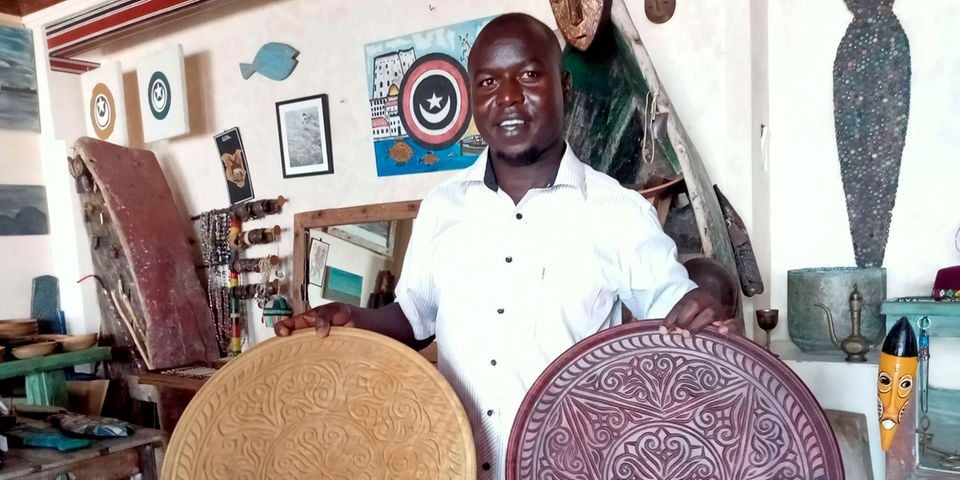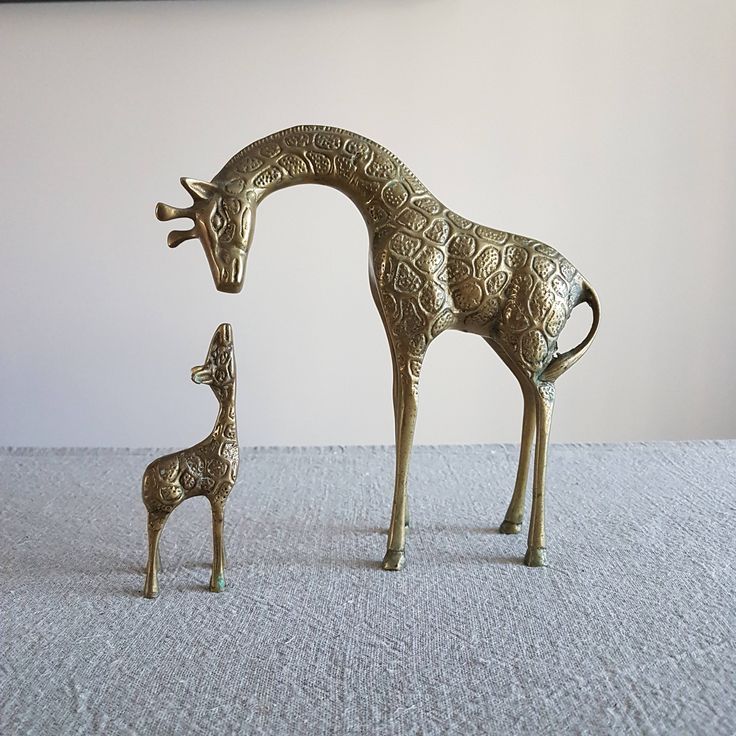
When Clement Kiptoon first set foot in Lamu in January 2020, all he had was a librarian’s certificate and lots of hope in a county kilometres away from his family’s home in Baringo.

Kiptoon completed his Higher National Diploma in Library Archives and Information Science in 2017 after studying and graduating at the Nehema Institute of Science and Technology in Eldoret. His hope and determination, however, faded after failing to get a job.
In January 2020, Kiptoon visited Lamu County, where his uncle, Isaiah Chepyator, and elder brother, Maxwell Kiptoon, lived. The two worked as employees in one of the carpentry shops within Lamu Town, having mastered the art of woodcarving.
This visit, as well as encouragement from his uncle and brother, prompted him to learn woodcarving, though he would go on to carve a niche for himself in recyclable products.
He took up their challenge and quickly learnt how to use a chisel and carving knife. He had observed that plastic waste was a major menace in many of Lamu’s beaches and constituted the biggest challenge in solid waste management.
The beaches were polluted with discarded plastics and rubber, old boats and dhows, old nets and flip-flops, among other solid wastes. This is how his enterprise, Lamu Local Artist, came about. The business was set up in partnership with his uncle and brother, collectively investing an initial Sh20, 000.
Currently, the shop is one of the few household names in Shela town, which is known for selling curios made from recycled materials to tourists and other visitors in the area.
He also contracts community-based organisations, who supply him with semi-processed waste material such as plastics that are crushed, cleaned and dried.
Fieldwork
The plastics are then sorted according to quality before being transformed into decorative pieces. Twice every month, Kiptoon and his business partners have set aside specific days where they focus on fieldwork, which involves collecting waste materials such as flip-flops, seashells and other waste from the beaches of Shela, Takwa, Ras Kitau, Lamu Old Town and Wiyoni.
They have since opened their own workshop where they gather the waste materials to undergo some work, including carving before it is displayed for sale at their shop in Shela Town.
To enable them to meet their customers’ demands, including making home deliveries, they have employed four casual labourers who pay between Sh500 and Sh1,000 per day depending on the roles they undertake on that particular day. Rent takes up Sh15, 000 per month.
Since their major clientele are domestic and international tourists, Kiptoon says the most lucrative time of year is during the high tourist season, particularly between August and December, when he can earn as high as Sh80, 000 per month. The lowest season is between January and July when tourist numbers are always low. During this period, Kiptoon says he sells makes approximately Sh40, 000 per month.
Some of the items produced here include cloth hangers, mirror frames, wooden plates, Lamu door decorative designs, decorative items made from seashells, flip-flops, driftwood bangles, bao board games and caps.
The items are sold at prices ranging from Sh300 to as high as Sh20, 000 depending on the size, design, and specifications of the item in question. Items such as fish decorative models and cloth hangers will cost you Sh300, while those ranging from Sh10, 000 to Sh20, 000 include mirrors held in decorative wooden frames and carvings. Highly-priced items include tables and chairs made from wood obtained from the old boats.
“I am happy that I have a place where I can generate income to provide for my family. I am self-employed and I really enjoy it,” says Kiptoon.
Some of the challenges the business encounters is marketing.
“We rely on tourists as our main customers. Lamu is a tourist destination, but most of the time, the local government is not keen on marketing tourist-related businesses like the one we’re operating.”
High taxation
He also complains of high taxation as well as the high cost of transportation of waste materials from the beaches to their workshop.
“When conducting our usual monthly fieldwork, we have to employ more casual labourers to assist in gathering and ferrying the waste to our workshop, which translates to an additional cost.”
Speaking from experience, he advises graduates and other youth without jobs to be open-minded as they seek jobs and consider self-employment if no jobs are forthcoming.
“Had I waited until I got a job paying me a salary every month, I believe I would still be seated somewhere without a job to date. Getting jobs on the basis of simply possessing academic credentials, as was the case in the past, is not a reality today,” Kiptoon points out, observing that today’s graduates are confronted with unemployment due to the fast-changing world of work and the limited and competitive opportunities available.
Source | Nation
